Can Cats Drink Alcohol?
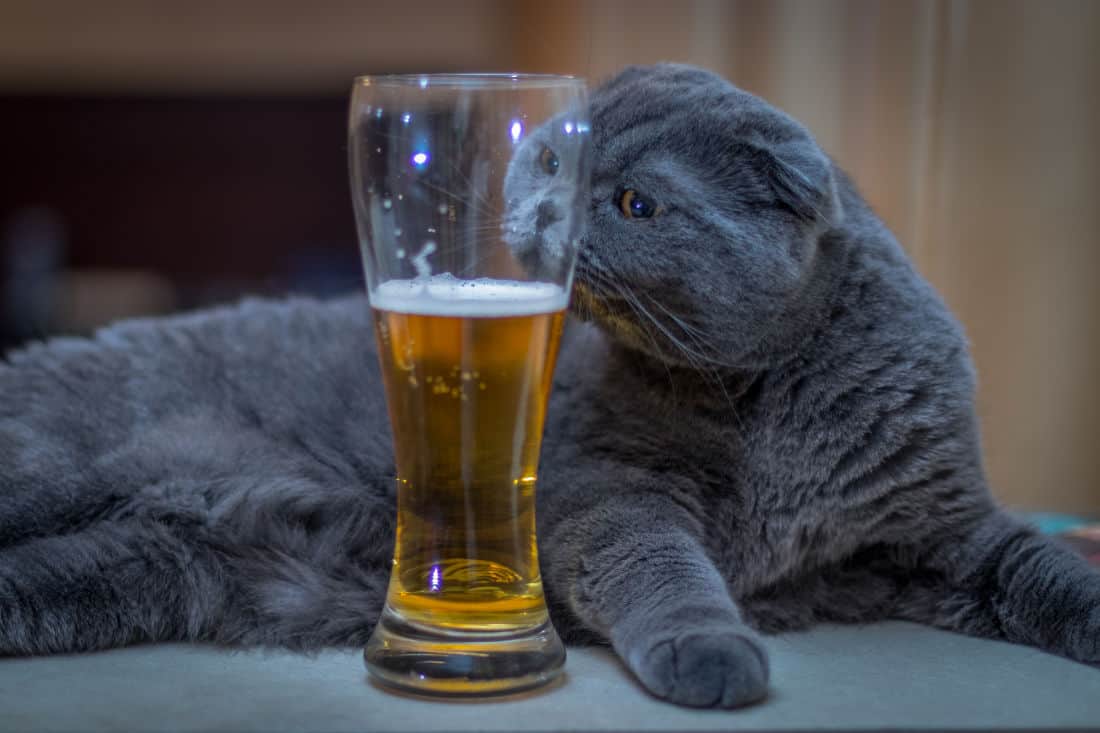
While alcohol might be a staple in many house parties, it can be dangerous to the pets living in the house. Alcohol is potentially poisonous to many domestic pets.
Cat should not drink alcohol. Felines are among those pets that can’t tolerate alcohol in any of its forms. Although they don’t like its taste, they might be attracted to the sweetness of other ingredients that are mixed with it. Alcohol is deadly to cats.
Some cases of alcohol poisoning in cats and many pets are caused because their parents gave them alcohol. But many other cases happen as accidents, or as a result of a lack of the necessary information.
To keep our lovely felines protected from ethanol toxicosis, it’s best to prevent the situation from happening in the first place. And in case of any abnormal behaviors on the cat, it’s recommended to rush to the vet.
Cat Attitudes is reader-supported. When you buy through links on our site, we may earn an affiliate commission.
There are a lot of products in our houses that we don’t know might be dangerous for our lovely little cats. So, it can be common to find ourselves in a similar situation. Knowing how to deal with it can save our cats’ lives.
In this article, we’ll be sharing with you a detailed answer to the question: can cats drink alcohol? This includes knowing the consequences of such action, its symptoms, how to treat it, and how to prevent it.
What Happens When Cats Consume Alcohol?
Cats are non-tolerant to alcoholic beverages of all types. A tiny sip of it can cause severe damages to their bodies. The medical term used to refer to this case is ethanol poisoning or ethanol toxicosis.
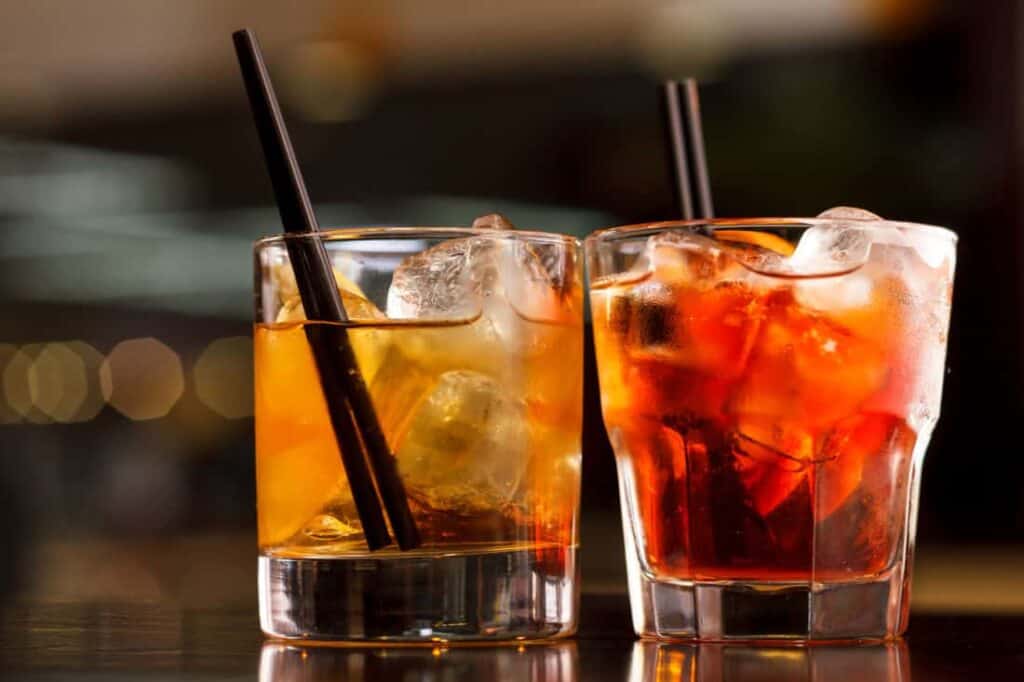
The Dangerous Effects of Ethanol Poisoning
Since alcohol is a depressant, it first affects the central nervous system of the cat. It causes drowsiness, lack of coordination, and even loss of consciousness. And it doesn’t stop there.
Other consequences of ethanol poisoning are kidney and liver failure, serious cardiac problems, and damaged body cells. Also, the presence of alcohol in the bloodstream of a cat can cause metabolic acidosis which means that their blood becomes hyper acidic.
Sadly, many cases of alcohol poisoning for cats are life-threatening.
The Reason behind Alcohol Toxicity
Human bodies can tolerate alcohol because it contains the needed enzymes for decomposing the consumed alcohol. These enzymes also help in detoxifying the body from it.
But in cats and other pets, alcohol can’t be decomposed and expelled from their bodies. This is because their bodies don’t contain the needed enzymes for this process. So, what happens is that the consumed alcohol stays in the blood track undecomposed causing the body to malfunction.
The Amount of Alcohol Needed to Cause Damage
The severity and the rate of the side effects depend on several factors. The two main factors are the weight of the cat and the amount of alcohol consumed. Smaller cats and obese cats are affected by ethanol poisoning at a faster rate.
Also, in case a cat consumed alcohol on an empty stomach, it’ll be affected by that at a faster rate than when consumed on a full or half-full stomach. The type of consumed alcohol plays a role in the seriousness of the consequences.
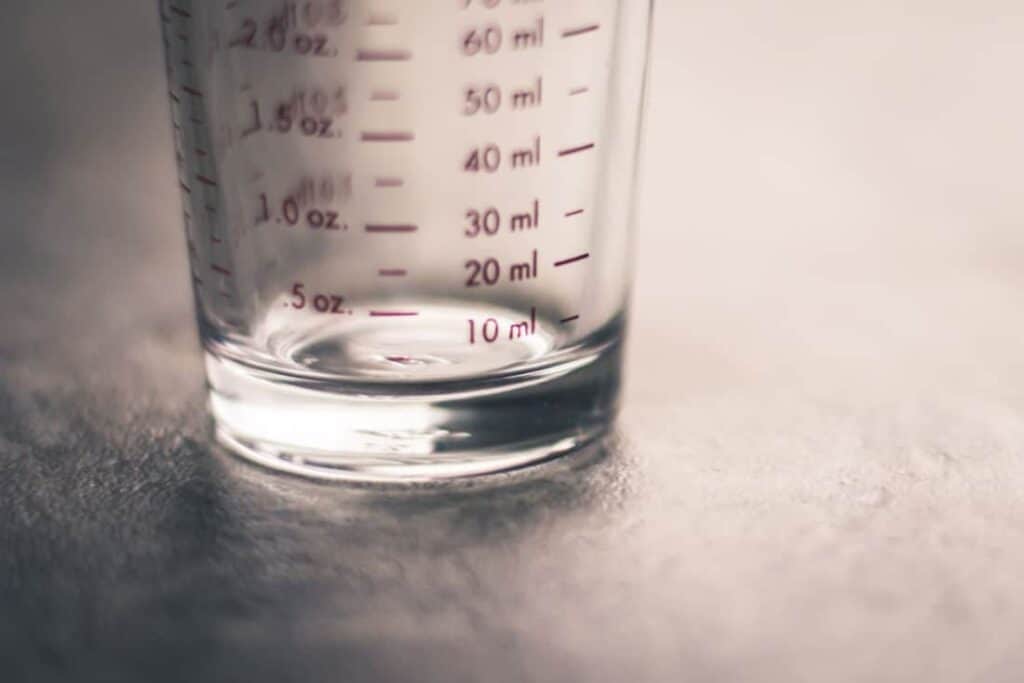
The lethal dose of alcohol for most cats is 5.5 g/kg of 100% pure ethanol. The average cat’s weight is around 10 pounds. So, it’s about 25 millilitres (.85 ounces) of alcohol.
Keep in mind that if a cat is exposed to products containing alcohol can get a toxic reaction through their skin too. However, it’s okay to touch your cat after cleaning your hands with a hand sanitizer. It won’t do it any harm.
How to Know If Your Cat Has Consumed Alcohol?
The symptoms of alcohol consumption in cats resemble those in humans. It’ll look like the cat is drunk. This includes being overly excited, confused and trembling. These simple symptoms are in case the cat is lucky and didn’t consume much alcohol.
In serious cases, there are other symptoms when noticed you need to take your pet to the vet directly. These symptoms include:
- Vomiting
- Increased thirst
- Lethargy
- Excessive urination or diarrhea
- Difficulty breathing
- Losing consciousness
- Seizures
These signs might take from 10 to 30 minutes to develop. This is in case your cat drank more than just a sip or if it consumed the alcohol on an empty stomach. In other cases, the symptoms might not be visible unless after an hour or two.
Ethanol poisoning symptoms can resemble those which occur when a cat consumes antifreeze (ethylene glycol poisoning).
What to Do If a Cat Consumed Alcohol
If you suspect that your cat has consumed alcohol in any of its forms, take it directly to the vet. Some say that if the symptoms are mild you can just make your cat sleep it off. This is true.
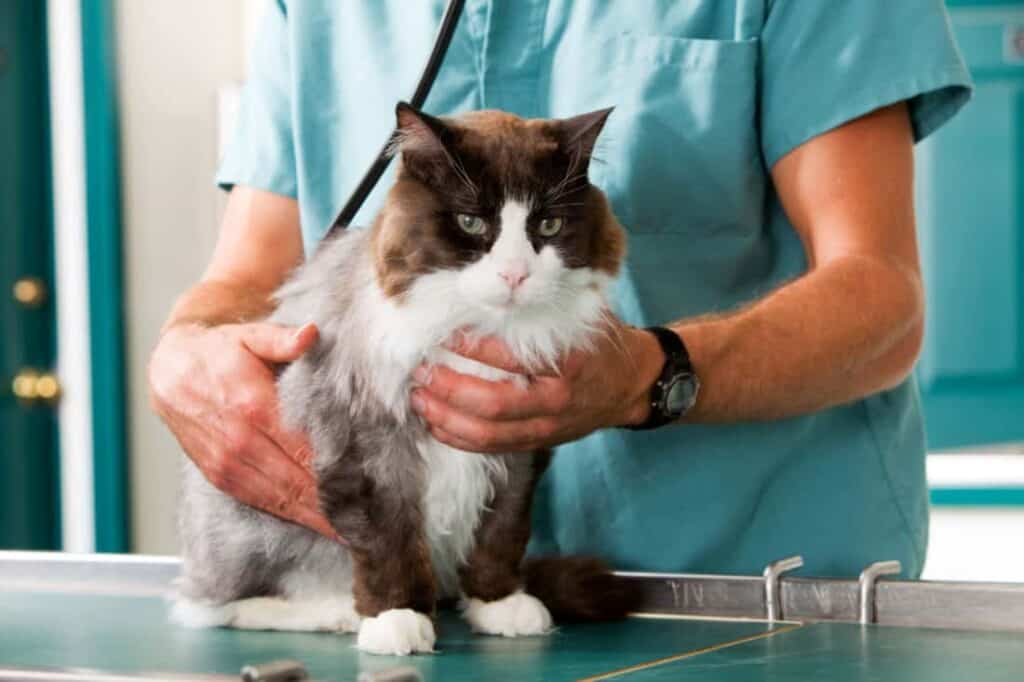
However, the symptoms might be mild in the beginning and increase over time. So, it’s safer to take your cat to be checked once it shows any of these signs.
Try to figure out what type of alcohol your cat got into if you can. If you left any type of alcoholic beverages or any food that contains alcohol somewhat available to the reach of your cat this might be easy to figure out.
But, if this isn’t the case, look for medications, cleaning supplies, or any commercial products that might contain alcohol and your cat can access. Also, check if your cat was able to search through your garbage.
This investigation-like step is crucial so you can be helpful to the vet.
Diagnosis and Treatment
When you take your cat to the vet, make sure to be as descriptive and detailed as you can. If you know the type and the amount of the consumed alcohol make sure to tell the doctor.
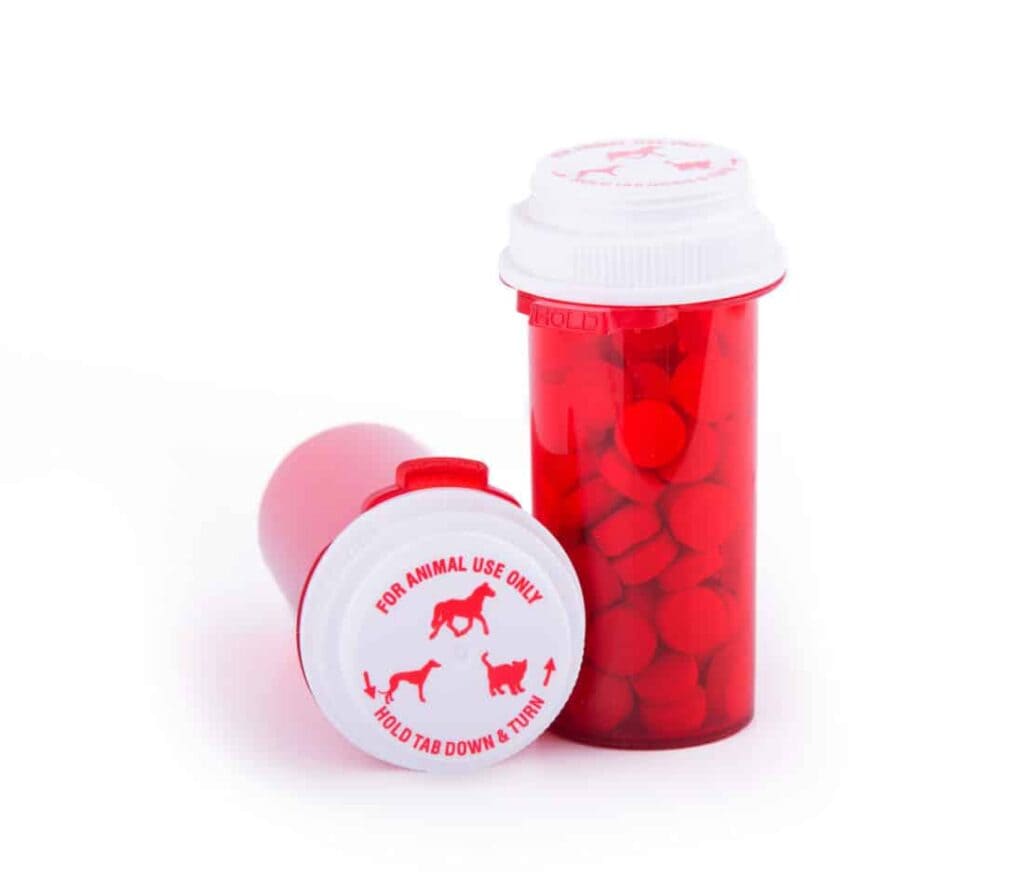
Also, make sure to mention any medical conditions your cat is currently dealing with or dealt with in the past. The doctor needs to know about any medications your cat takes as well.
The vet will run some blood tests to determine the concentration of the alcohol in your cat’s bloodstream as well as its blood acidic level. Then, the vet will decide on the type of treatment needed according to the severity of your cat’s symptoms.
If you were able to take your cat to the vet within an hour or two after the incident, induced vomiting might be a proper treatment for it. Don’t try to do this on your own though. You might cause your cat to suffocate.
Your cat’s vet might prescribe medications to decrease the ethanol level in your cat’s bloodstream. Also, to treat the damaged internal organs. Other treatments might be needed like intravenous fluids for rehydration, artificial ventilation, or cardiac therapy for severe cases.
Can My Cat Be Fully Recovered From Ethanol Poisoning?
Ethanol poisoning could be life-threatening to pets and its effect spreads quickly. If the affected pet received suitable treatment within the first three hours, there is a chance for it to have a full recovery.
However, if its kidneys and liver were badly affected, the chance for full recovery decreases. That’s why it’s recommended to take the pet right away to the vet. Even if the symptoms are mild.
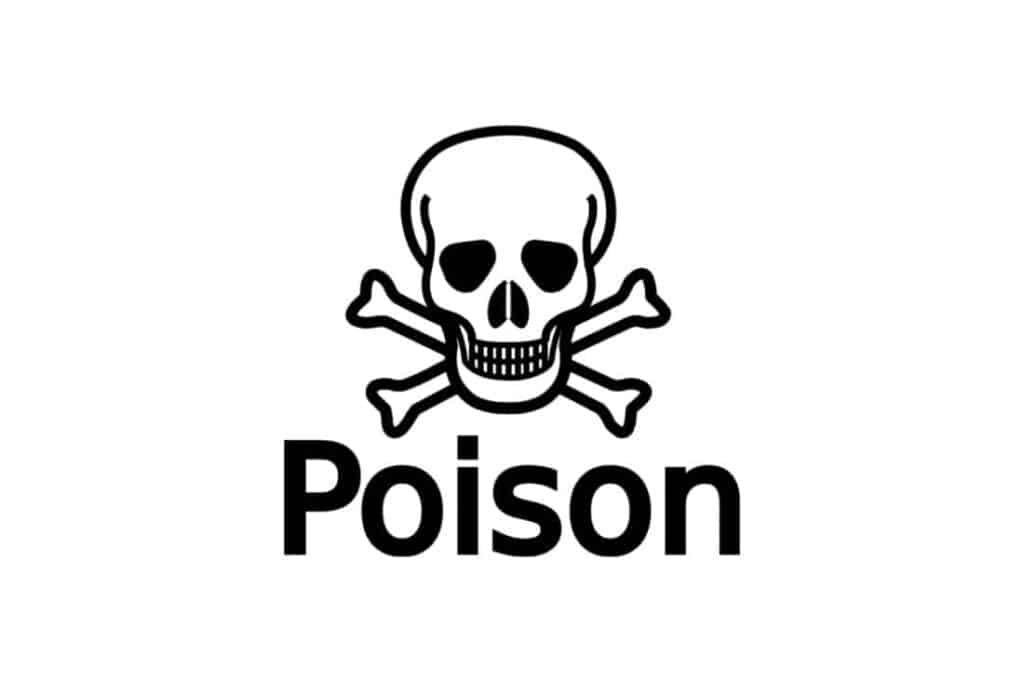
How to Prevent Your Cat From Consuming Alcohol Accidentally
Cats usually don’t like the taste of alcohol. But, for instance, if you leave a glass of wine on a table they might try it out of their curiosity.
Even though they don’t like the taste of alcohol, they might be attracted to the taste of other ingredients mixed with it. Lots of alcoholic beverages don’t only contain alcohol, but other sweet ingredients as well.
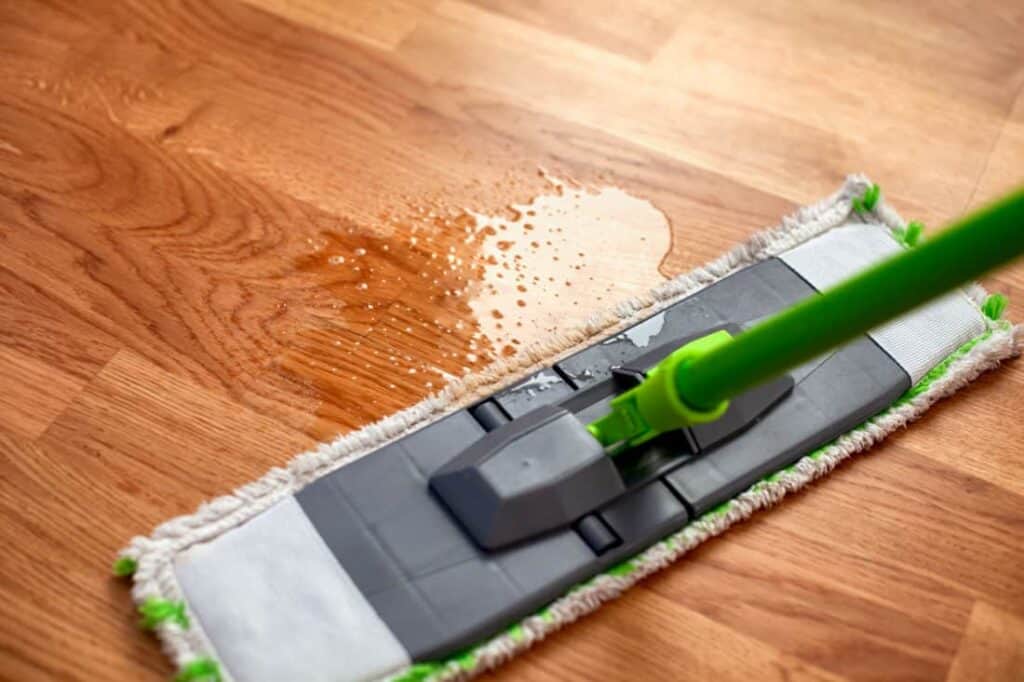
Other liquids in your house might contain alcohol. This includes liquids like vinegar and apple or orange juice. We recommended reading about the foods that your cat shouldn’t eat to ensure your cat lives a healthy life.
We might forget about the food in our kitchen. A lot of it contains alcohol. Fermented foods, such as fermented bread dough can be a serious threat to your cat.
What might come as a shock to you is that many fruits contain alcohol. Ripe bananas, pears, and apples are among those fruits. And of course, we can’t forget grapes.
There are other products in your house that may contain ethanol:
- Detergents and other cleaning supplies
- Disinfectants
- Inks
- Paints
- Dyes
- Medication
- Perfume or cologne
- Mouthwash and many more
Keeping the previous products in locked cabinets or containers is the best way to keep them out of your cat’s reach. Another way to ensure that your cat won’t accidentally consume alcohol, is not to leave any glasses that contain leftover alcohol in a place that can be easily accessed by your cat.
Also, wipe immediately in case of any alcohol spills. One more thing that we highly recommend is to search for local pet hospitals or veterinarians that work night shifts as well. This can be helpful for many emergencies.
While it might be sweet to share everything with your pets, oversharing can be very harmful when sharing the wrong food or drinks. Making sure that we’re aware of what might be harmful to our cats can be the best way to ensure that their health isn’t at risk.
Is Cat Wine Safe for My Cat?
Now cat lovers can provide their cats with what might be considered the ultimate luxury for felines: a glass of cat wine. Yes, wine for cats and dogs is a real thing. Who would’ve thought it would be possible, right?
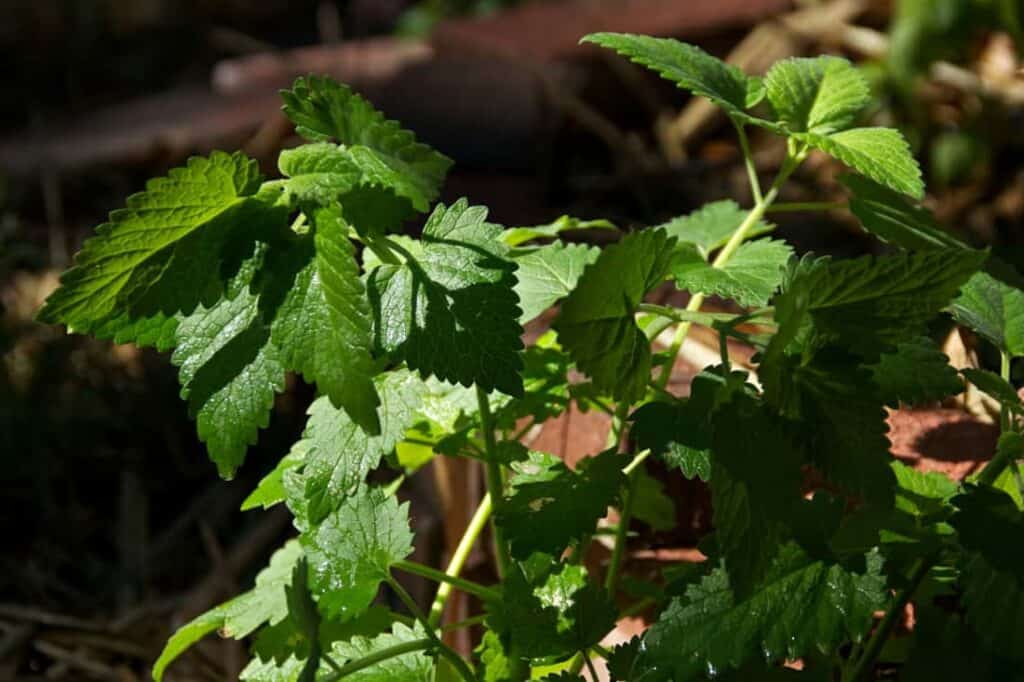
Cat wine is made from beet juice, catnip, and preservatives. It has the same mellowing effect on your cat caused by the catnip in the drink. The best thing about it is the fact that it doesn’t contain alcohol at all, so it’s safe for your cat.
Though it’s alcohol-free, it’s still recommended to consult your cat’s vet first. The beet juice is packed with sugar that might upset your cat’s stomach. This happens especially if your cat is struggling with diabetes or gastrointestinal issues.
If your cat’s vet doesn’t approve of it, a good alternative is catnip tea.
Final Thoughts
Alcohol is the number one enemy for many pets, especially cats and dogs. Accidents can happen and they may be able to get to it.
